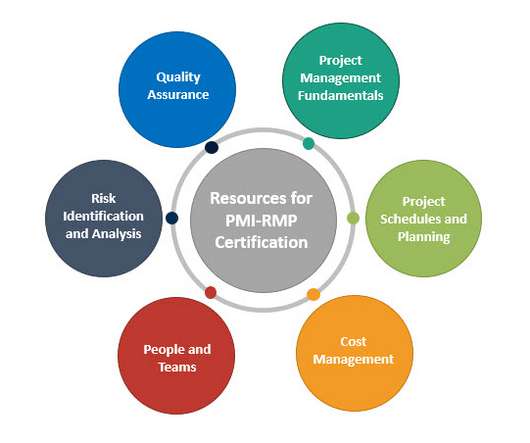PMI-RMP® Certification
Techno-PM
MARCH 16, 2022
Overview: The Project Management Institute's Registered Risk Manager Program (PMI-RMP®) is a risk management certification for project managers. The program covers the process of managing risk in projects and organizations and provides an understanding of how to build more sustainable, resilient systems.














Let's personalize your content